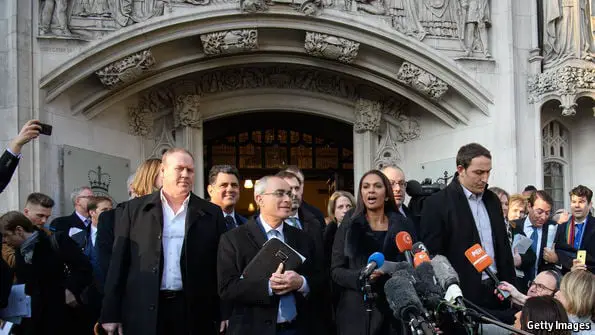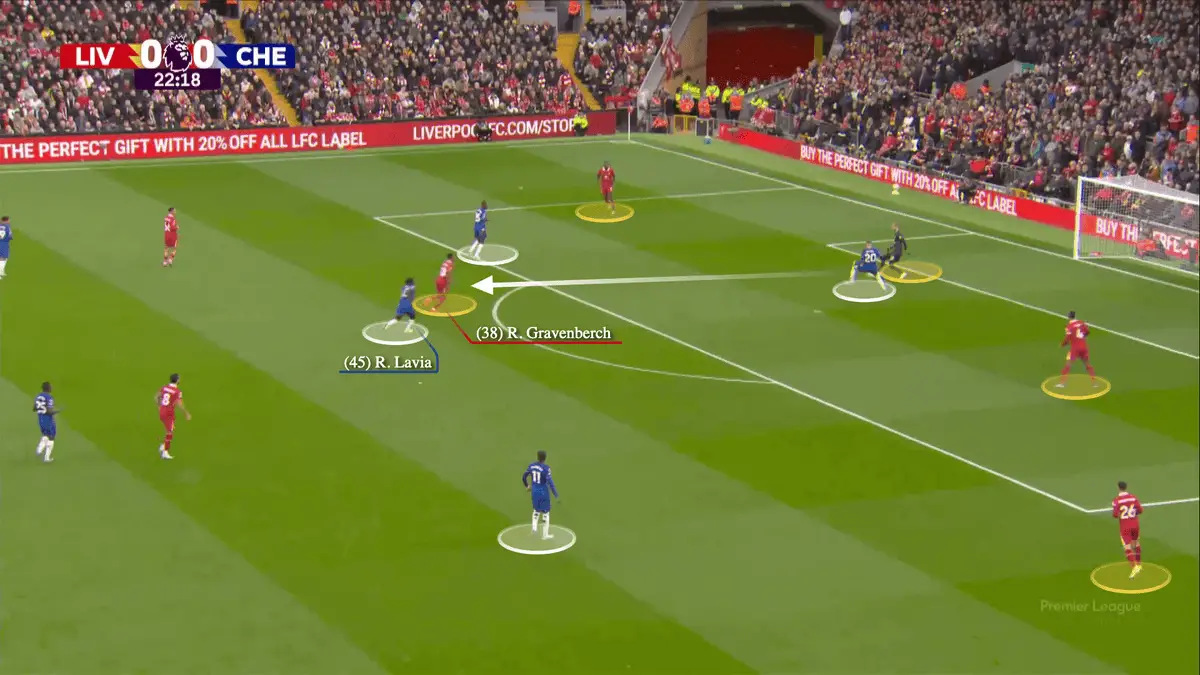
By BAGEHOT
ON THE morning of January 24th the Supreme Court ruled that Britain’s government has to put Article 50 (the formal two-year process by which Britain will leave the European Union) to a vote in parliament. It should never have come to this. Last summer Brexiteers won the EU referendum by pledging to return sovereignty to Westminster. It was shabby of Theresa May to try to bypass legislators—and a strategic misjudgment to waste time by appealing December’s ruling by the High Court, which the Supreme Court has now straightforwardly upheld.
Some detect an establishment stitch-up: Iain Duncan Smith accuses the judges of telling parliament what it should do. On this (like so much else) the welfare secretary is wrong. Sensible Brexiteers are tellingly welcoming the judgment, the essence of which is that the executive’s “royal prerogative” does not empower it to overrule the 1972 act taking Britain into the EU. The result is a victory for parliamentary democracy and a credit to Gina Miller (pictured above), the businesswoman who bravely brought the case in the first place (she has been showered with death threats for her troubles).
The ruling is unlikely to prevent Mrs May from triggering Article 50 by her self-imposed deadline: the end of March. She is expected to put a narrow, single-clause (and thus fairly amendment-proof) bill to parliament imminently. Scottish National Party MPs and a handful of Labour ones are expected to vote against it but there is no question of it not clearing the House of Commons. There is a higher (but still sub-50%) chance that the Lords will attempt to frustrate the bill, but at most they will delay its progress. Crucially, the court’s judgment does not give governments in Scotland, Wales or Northern Ireland a veto.
What the ruling will do is make Britain’s constitutional tensions creak and groan like never before. The very fact that it was necessary spoke to the ambiguities created by the absence of a written constitution. The prospect of even a minority of Lords voting against the result of the referendum will highlight the arbitrary character of the unelected upper house. Whether MPs vote as their constituents did (some Labour MPs with seats that strongly voted Leave have already indicated they will vote against the bill) will probe the limits of representative principles. The debates may force MPs to stipulate what sort of final Brexit deal they would (and would not) vote for at the end of the Article 50 process, when the outcome of Mrs May’s efforts in Brussels will go before both houses.
Most of all the ruling illustrates the peril facing the union. The response from Nicola Sturgeon was ominous: “it’s becoming clearer by the day that Scotland’s voice is simply not being heard or listened to within the UK.” It is “becoming ever clearer” that a new independence referendum is needed, she added. In Wales, too, it could stoke demands for more autonomy. Then there is Northern Ireland, where EU membership is integral to the already-fragile peace settlement and where Mrs May’s “hard Brexit” threatens to impose a hard border. That this should now go ahead with the say-so of Westminster, but not Stormont, will surely aggravate the sectarian divide further.
All of which means it is increasingly hard to imagine Britain holding together without a new, more federal model involving some degree of political reform. As I wrote in my column in December:
Britain’s unwritten constitution runs on deference to steadily accumulated precedent. Brexit will create rifts and ambiguities for which no clear precedent exists, and such a volume and tangle of them that attempting to “muddle through”—that is, botch together case-by-case settlements—could result in paralysis or disintegration. Better, surely, to confront all the interlocking quandaries in one big public discussion leading to reforms and perhaps a written constitution. They say Britain avoided the “constitutional moments” of continental Europe and America because it experienced no post-Enlightenment revolution (Charles I lost his head in 1649). But Britain may now be approaching such a moment whether it likes it or not.







